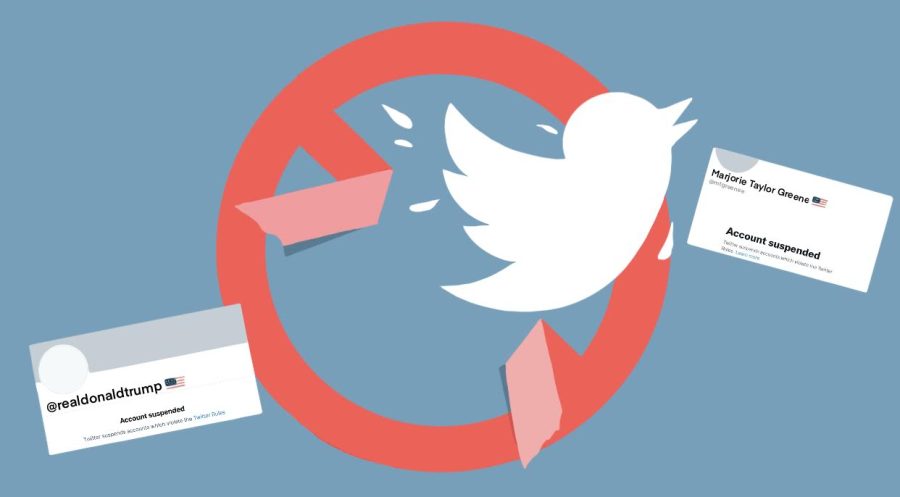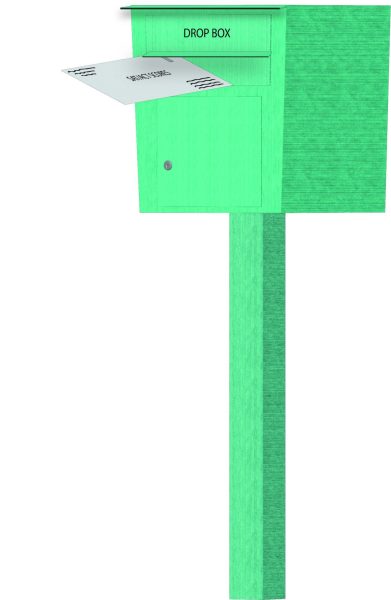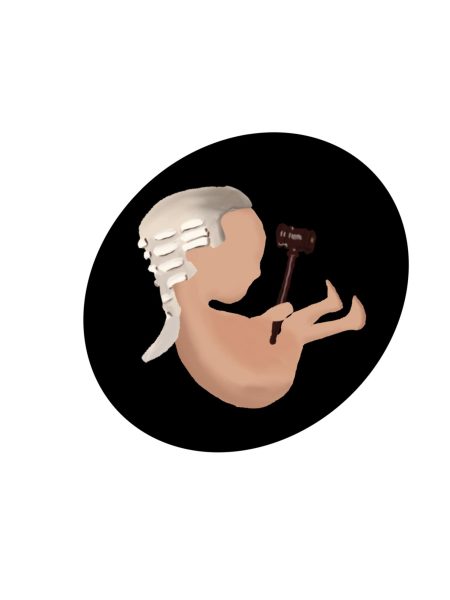Censorship in American politics
August 30, 2022
The political landscape of the United States is as volatile as it is divided. Social media platforms like Twitter have become a warzone, where users must tread lightly or they could fall victim to the rampant misinformation that inhabits social media. But is misinformation truly as harmful as some say it is? And does suspending and/or banning users spreading it do anything to reduce harm? I believe that misinformation has a place in politics and society as a whole, and that suspending politicians who spread misinformation only works toward radicalizing their followers further.
The suspension of politicians who are actively in office from platforms like Twitter, Facebook and YouTube has only been going on for about two years. In that time, seven politicians have been suspended, all of whom are Republican. It is easy to believe that all suspensions and bans on Twitter have been on Republican accounts, as all of these instances of Twitter censoring misinformation have been regarding Jan. 6, 2021 or COVID-19. While to some this seems completely justified, there are also Twitter users who feel like their representatives are being targeted by Twitter. When one group is being unequally affected by the efforts to minimize the spread of misinformation, it creates a not-so-united United States of America; where one side feels they are being silenced, and the other feels that their views are the only valid political stance.
Censorship has done more to divide the United States than misinformation has. Regardless of political stance, censorship should never occur. This is not because of infringement on the First Amendment, like some want you to believe. Instead, I think censorship should never be an option because it does two things that are harmful to the political landscape we share as American citizens. One, it can result in a phenomenon known as the backfire effect, which has shown that correcting misinformation might actually increase belief in the very misconception that has been corrected. Two, censoring misinformation spread by political figures removes the possibility for healthy political discourse, which should be found at the heart of any successful democracy. Without the presence of misinformation on Twitter, users are presented with a limited scope of the political landscape which will undoubtedly influence the decisions made by the potential voter.
Debunking misinformation has become something that individuals need to do when deciding who they are voting for. Politicians using social media to spread misinformation should be a clear indication of the values of that politician, so why is censoring them the reaction from social media platforms? Voters need to take more responsibility in educating themselves properly, rather than blaming platforms like Twitter and Facebook for not adequately moderating political information. If voters would take the time to do quality research regarding current events and the officials they might vote for, the level of education of voters in the poll booth would undoubtedly be higher than the current situation in America.
In summary, misinformation should be present online because it presents potential voters with a true view of who they are voting for. Censoring those responsible for the misinformation does more harm than good, because the risk of the backfire effect is more dangerous to the political landscape than silencing a politician making false claims about topics like COVID-19. Censorship should never be a reaction to misinformation, and the actions of Twitter against Republican officials has created a division between the two primary parties in the United States, one that must be mended before the political landscape can transition from a warzone to an intellectual utopia of democratic debate.













